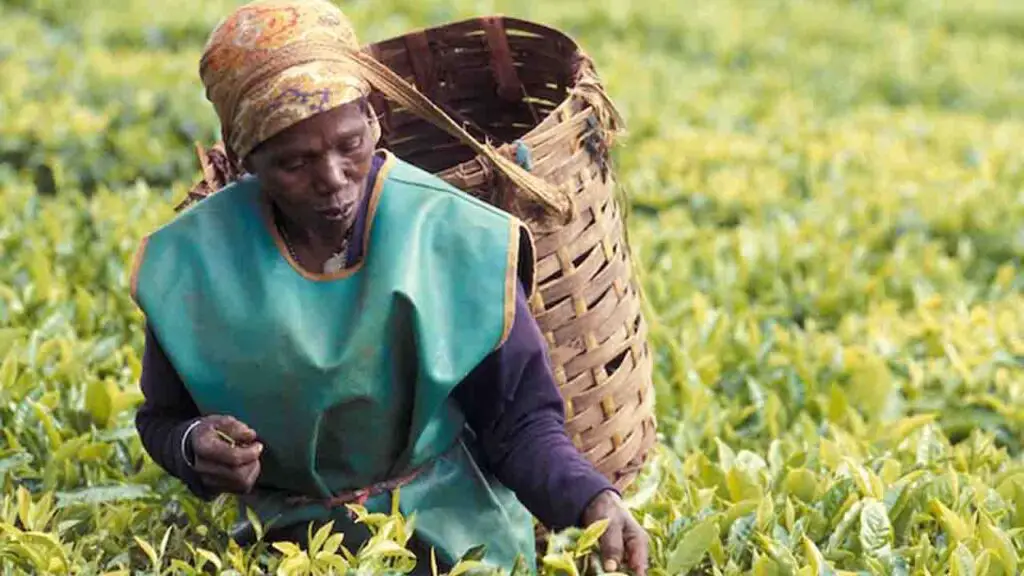- The project, launched in 2022, cuts across multiple services offering farmers a cushion to be stable and profitable.
- The project aims to support over 300,000 farmers in 2023 with the partnership.
- At least $140 million of loss is faced by Tanzania due to drought annually.
Ground-breaking crop insurance has been introduced in Tanzania to cover crop loss and safeguard farmer earnings. The crop insurance was introduced by a fertilizer manufacturing company, Yara Tanzania, in collaboration with Jubilee Insurance.
The transformative solution dubbed ‘AfricaConnect’, leverages technology to offer farming solutions as farmers in Africa grapple with the challenges of climate change.
The project, launched in 2022, cuts across multiple services offering farmers a cushion to be stable and profitable.
According to Yara Tanzania, Managing Director, Winstone Odhiambo, AfricaConnect has enrolled at least 83,000 so far, accessing crucial funding solutions, high-quality and dependable fertilizer, extension services, and a ready market for their produce.
“We are happy also to announce today that other than rice growers, in 2023 AfricaConnect will enlist maize, coffee, potatoes and Sunflower growers. We urge all targeted farmers to enrol and profit from various services provided,” Odhiambo said during a product launch in Dar es Salaam.
Odhiambo said crop insurance empowers hard-working farmers to secure decent livelihoods and food security.
The project is supported by a number of partners, including Equity Bank, Corteva Agriscience, Agriculture Seed Agency (ASA) and Murzah Wilmar Rice Millers Ltd.
The project aims to support over 300,000 farmers in 2023 with the partnership.
According to the Tanzania Insurance Regulatory Authority (TIRA), at least $140 million of loss is faced by Tanzania due to drought annually. Hence, the AfricaConnect intervention comes at the right time to aid farmers and other stakeholders across the value chain.
Yara Tanzania and the AfricaConnect project brings a swift solution that farmers access insurance coverage via a digital platform, but also linking banks with farmers needing loans on collateral-free basis.
READ:Tanzania’s agriculture ambitions fueling grain exportation in East Africa
Crop insurance in Tanzania
Tanzania is expanding its reach towards agri-business by setting up the stage right for farmers across the breadbasket zones. In 2021, agriculture contributed 27 percent of the nation’s GDP and employed 62 percent of the population.
The ambition was boosted by the unveiling of “Ajenda 10/30”, incorporating both public and private sectors to turn around the fortunes of thousands of people in the agricultural value chain.
By 2021, Tanzania had at least thirty-three registered insurance companies operating in the country. However, overall insurance penetration, which includes public and private insurance as a percentage of GDP, was approximately 1.68 percent in 2021.
The Association of Tanzania Insurers (ATI) noted that the market has grown by 25.5 percent, arguing for the economy’s growth and demand for insurance services.
The Tanzanian Insurance Regulatory Authority (TIRA) has listed at least six insurance companies who provide agriculture insurance by the year 2021. Sadly, the section performs rather poorly compared to other businesses.
However, according to TIRA, stakeholders are striving to increase farmers’ awareness of the use of agriculture insurance to protect against various risks.
READ:Banks eyeing Tanzania insurance market
As a result, over $565,000 was underwritten as GWP in 2021 versus $67,948 in 2020 and $141,025 in 2019. This constitutes 0.2 percent of the total general business underwritten during the same year. The most significant part of the premium was from the crop insurance class of business (90.8 percent). Other classes included livestock and fisheries.
The government aspires to fuse agriculture and insurance despite the industry’s challenges. Income-related constraints hinder farmers in ensuring their products and knowledge-based constraints are common among the rural population.
TIRA argues that designing the best framework will dictate product development suitable for agricultural products. Hencem Yara Tanzania is putting the latter to life.
Further down the line, the regulator promotes the development of insurance products by providers focusing on low-income earners.
The AfricaConnect project brings warmth to the agriculture insurance sphere. According to a publication by The Chanzo, the sub-sector requires a form of an intermediary to ensure the elimination of the sipping trend of insurance service providers towards the agricultural sector.
In December 2022, the insurance industry brought in regulatory reforms (investment and solvency margin management, insurance claims management and insurance digital platforms) that stand to reshape insurance operations in the country.
The actors argue the latter to promote fair competition in the market—including increasing penetration to around 50 percent. The sub-sector stands to expand further with the right strategies and investment.
Until June 2022, there were 7.8 million Tanzanians who used insurance services nationwide out of a total population of 61.7 million.
READ:Taking a looking at Tanzania’s insurance industry











